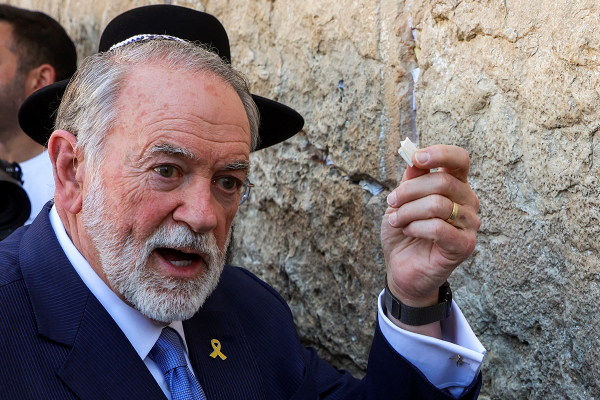Trump Foregoes Dinner That Celebrates End of Ramadan at White House
Donald Trump broke a two decade old White House tradition by opting not to host an iftar dinner to mark the end of Ramadan, the Islamic holy month of fasting. Instead, the president and first lady Melania released a statement wishing "warm greetings" to those celebrating Eid al-Fitr, marking the end of Ramadan.
"Muslims in the United States joined those around the world during the holy month of Ramadan to focus on acts of faith and charity," the message read, which wasn't posted on social media. "During this holiday, we are reminded of the importance of mercy, compassion, and goodwill. With Muslims around the world, the United States renews our commitment to honor these values," it went on to say.
As early as May, secretary of state Rex Tillerson had refused a recommendation by the State Department's office of religion and global affairs, which is an iftar dinner. Instead, it encouraged U.S. ambassadors to celebrate Ramadan through a variety of activities.
By foregoing the celebration, Trump broke an annual tradition dating back to President Thomas Jefferson in 1805. First lady Hilary Clinton resurrected the event in February 1996, and it has since been observed by the past three administrations. The iftar dinner at the White House is usually attended by prominent members of the Muslim community, diplomats and members of Congress.
Critics say this action of Trump reflects his administration's treatment to Muslims. Haroon Moghul, a fellow in Jewish-Muslim Relations at the Shalom Hartman Institute accused Trump employing the worst anti-Muslim bigots in his administration and implementing Islamophobia into law.
He cited the controversial travel ban on six predominantly Muslim countries, of which significant elements were upheld by the Supreme Court. "It is the beginning of his hatred of us, rhetoric unfolding into policy, and not the end. What difference would a dinner invitation make to any of these things?" Moghul added.





















